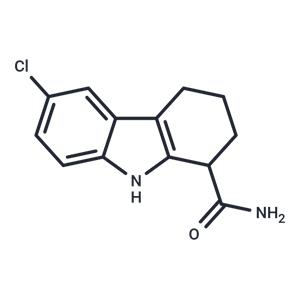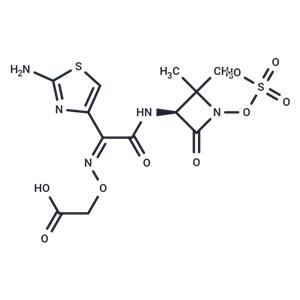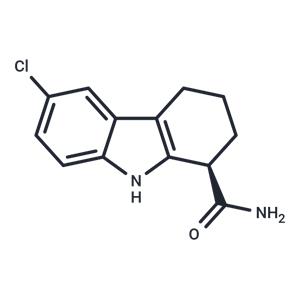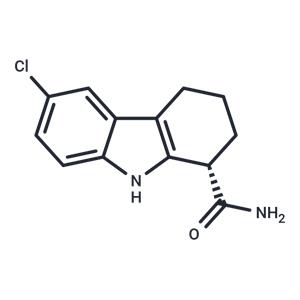
Selisistat NEW
| Price | $43 | $52 | $94 |
| Package | 5mg | 10mg | 25mg |
| Min. Order: | |
| Supply Ability: | 10g |
| Update Time: | 2024-11-19 |
Product Details
| Product Name: Selisistat | CAS No.: 49843-98-3 |
| Purity: 99.79% | Supply Ability: 10g |
| Release date: 2024/11/19 |
Product Introduction
Bioactivity
| Name | Selisistat |
| Description | Selisistat (EX-527) is a potent and specific inhibitor of the deacetylase SIRT1 (IC50 = 38 nM) and can be utilized in the study of neurological disorders such as Huntington's chorea. |
| Cell Research | NCI-H460 cells, MCF-7 cells, U-2 OS cells, or HMEC were plated at 2,000 cells per well in opaque-walled 96-well plates for the viability assay and 800 cells per well in 96-well Cytostar-T scintillating microplates for the proliferation assay. Cells were incubated for 1 day (NCI-H460) or 2 days (MCF-7, U-2 OS, and HMEC) prior to exposure to DNA-damaging agents and deacetylase inhibitors. All experiments were performed in triplicate. For viability assays, cells were treated with the indicated compounds for 48 h. Cell viability was then determined using the Cell Titer-Glo luminescent assay, which measures total ATP levels as an index of cell number. Luminescence was measured on a Luminoskan Ascent. For the proliferation assay, 0.5 μCi/ml of [14C]thymidine was added to the medium immediately after the genotoxins and deacetylase inhibitors. Plates were counted at 48 h (HMEC) or 72 h (NCI-H460, MCF-7, and U-2 OS cells) in a Microbeta liquid scintillation counter. Thymidine incorporated by the cells was detected by proximity to the scintillant in the base of the Cytostar-T tissue culture plate [1]. |
| Animal Research | Mice were injected with RSV (RSV) 30mg/kg (4ml/kg) or equivalent volume of DMSO (Vehicle) (4ml/kg) intraperitoneally 18 hours pre-sepsis. This dose of RSV in mice was as per documented literature. In one group of mice, RSV pre-treated mice received EX-527 (10 mg/kg intraperitoneally; 4ml/kg, Vehicle: DMSO) within 10 minutes of cecal ligation and puncture [5]. |
| In vitro | METHODS: Human colorectal cancer cells, HCT116, were cultured in 0.1% serum and Selisistat (1-2 μM) for 7 days and cell numbers were assayed. RESULTS: When HCT116 cells were cultured in 0.1% serum, the addition of Selisistat resulted in a 90% increase in cell number after 7 days. SirT1 is an important regulator of cell proliferation in growth factor-deficient conditions. [1] METHODS: Human lung cancer cells NCI-H460 were treated with etoposide (20 μM) and Selisistat (1 μM) for 6 h, and the expression levels of target proteins were measured by Western Blot. RESULTS: Selisistat produced an increase in acetylated p53 in cells treated with the DNA damaging agent etoposide. [2] |
| In vivo | METHODS: To investigate the effects on lung injury, Selisistat (10 mg/kg) was administered intraperitoneally to Balb/C mice, and liver injury was induced by injection of LPS 0.5 h later. RESULTS: Selective inhibition of SIRT1 by Selisistat may attenuate endotoxemia-associated acute lung injury partly by inhibiting mTOR. [3] METHODS: To investigate the effects on Huntington's chorea (HD), Selisistat (5-20 mg/kg, 0.5% HPMC) was administered by gavage to R6/2 mice once daily until death. RESULTS: Selisistat treatment resulted in a significant increase in survival and a significant increase in median lifespan of 3 weeks in mice receiving the 20 mg/kg dose, and a significant improvement was also observed when examining voluntary motor activity. [4] |
| Storage | Powder: -20°C for 3 years | In solvent: -80°C for 1 year | Shipping with blue ice. |
| Solubility Information | 10% DMSO+40% PEG300+5% Tween 80+45% Saline : 1.87 mg/mL (7.52 mM), Please add co-solvents sequentially, clarifying the solution as much as possible before adding the next one. Dissolve by heating and/or sonication if necessary. Working solution is recommended to be prepared and used immediately. DMSO : 60 mg/mL (241.24 mM) Ethanol : 12.4 mg/mL (50 mM) |
| Keywords | mammalian | Huntington's | inhibit | pathology | Sirtuin | Drosophila | deacetylation | Selisistat | SEN-0014196 | EX 527 | Inhibitor | SEN 0014196 | disease | EX527 |
| Inhibitors Related | Resveratrol | Nicotinamide |
| Related Compound Libraries | Highly Selective Inhibitor Library | Anti-Neurodegenerative Disease Compound Library | Bioactive Compound Library | Anti-Cancer Clinical Compound Library | Anti-Aging Compound Library | Bioactive Compounds Library Max | Anti-Cancer Drug Library |
Company Profile Introduction
Target Molecule Corp. (TargetMol) is a global high-tech enterprise, headquartered in Boston, MA, specializing in chemical and biological research product and service to meet the research needs of global customers.
TargetMol has evolved into one of the biggest global compound library and small molecule suppliers and a customer based on 40+ countries. TargetMol offers over 80 types of compound libraries and a wide range of high-quality research chemicals including inhibitors, activator, natural compounds, peptides, inhibitory antibodies, and novel life-science kits, for laboratory and scientific use. Besides, virtual screening service is also available for customers who would like to conduct the computer-aided drug discovery.
You may like
Recommended supplier
| Product name | Price | Suppliers | Update time | |
|---|---|---|---|---|
| $0.00/1KG |
VIP3Y
|
Henan Aochuang Chemical Co.,Ltd.
|
2022-10-13 | |
| $8.80/1KG |
VIP7Y
|
Career Henan Chemical Co
|
2019-07-12 |
- Since: 2011-01-07
- Address: 36?Washington?Street, Wellesley?Hills
INQUIRY







 United States
United States